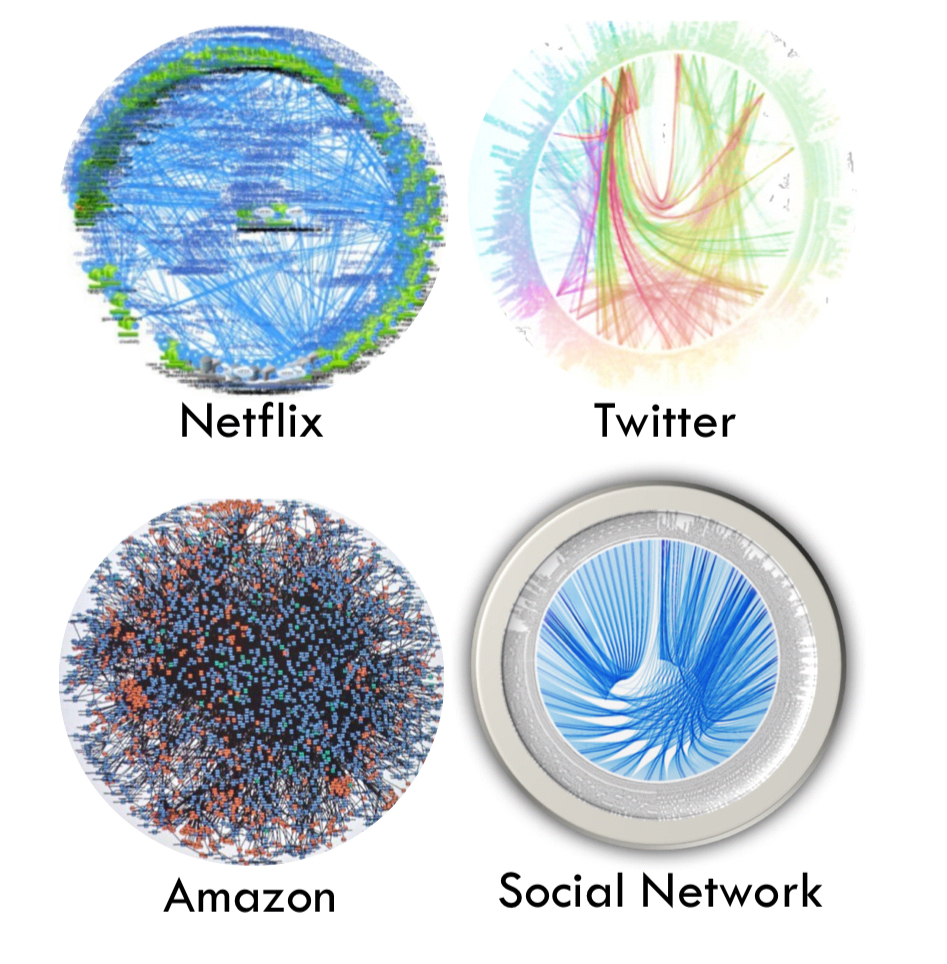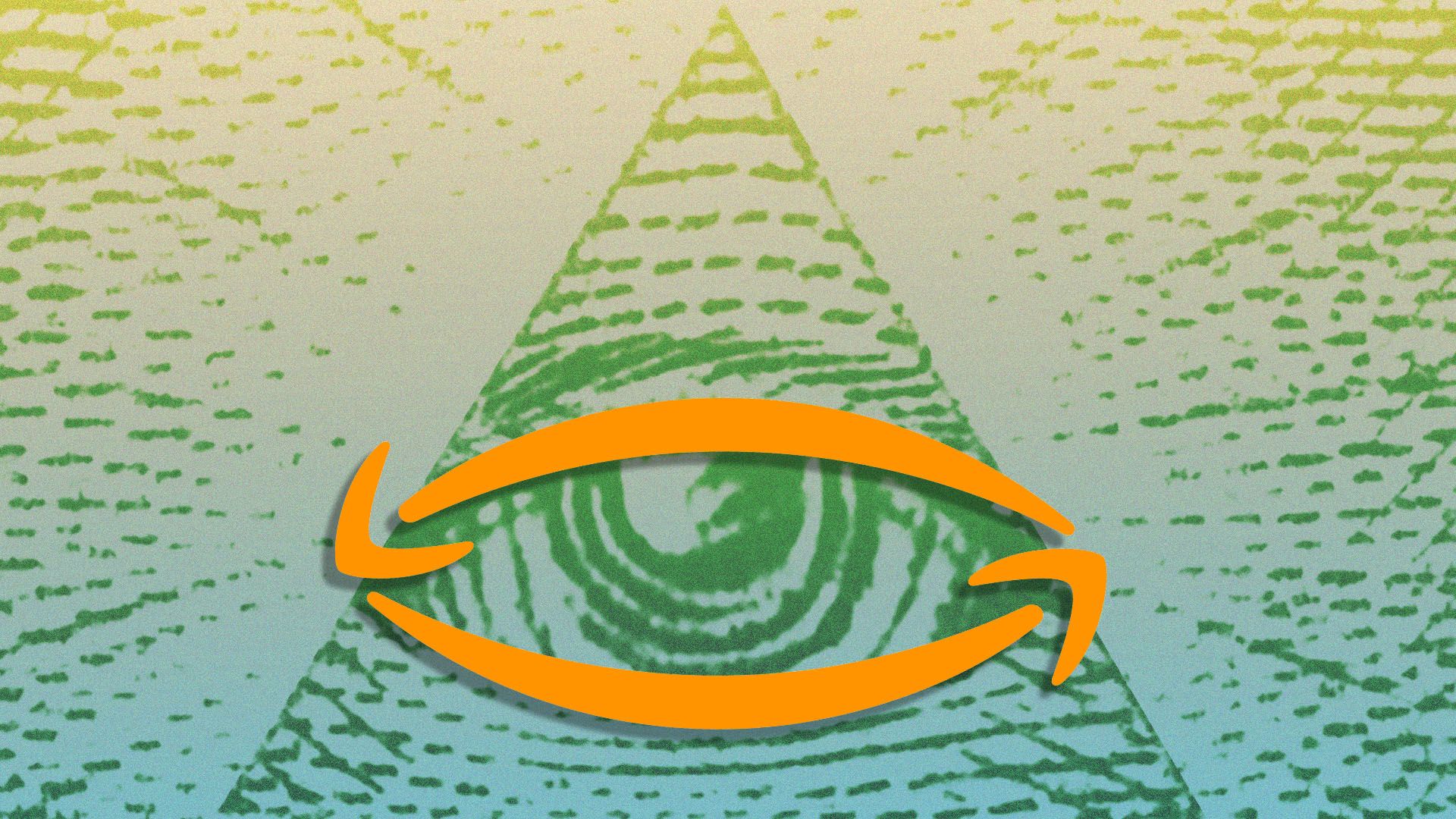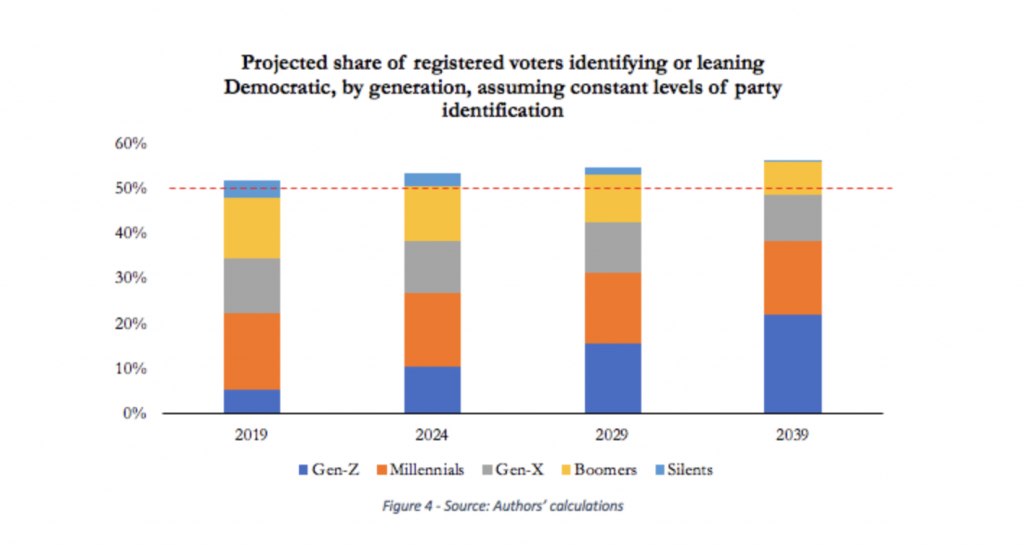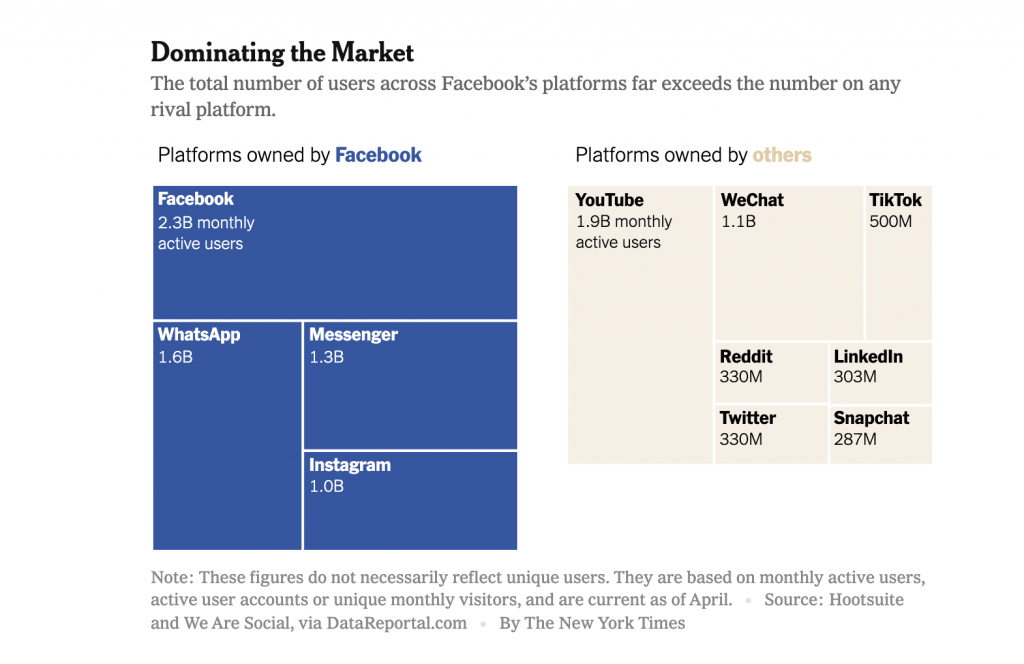Connections
[avatar user=”malm” size=”small” align=”left” link=”file” /]
Mark Zuckerberg and Yuval Harari in Conversation was an interesting juxtaposition of beliefs. Zuckerberg the technologist was passionate about connecting people but defensive around Facebook and tech more broadly. Harari the historian came across as more liberal and aware of the limitations of human nature. More human-centric if you will:
At the heart of the debate was the uncomfortable truth that Facebook may have digitally connected more human beings together than any other organisation in history but are arguably more alienated and atomised than ever:
People are more connected (virtually) than ever before but we also see some disturbing statistics around the world related to social media. Youngsters increasingly are lonely, depressed, anxious, have auto-immune diseases and burn-outs.
Zuckerberg sits atop an empire of connectivity the like we have never seen before. Platforms owned by Facebook mediate more interactions than all its competitors put together:
And it is these platforms that have bought to life the stunning vision that James Burke prophesied would happen 34 years ago namely that the ability to communicate peer to peer would break down the walls of ‘rigid conformity and totalitarianism’. He couldn’t have foreseen the downsides of everyone having an opinion and being able to broadcast it in real time to millions of others, powers that even the greatest rulers of old didn’t have:
James Burke also did this – possibly the most prescient bit of TV ever produced. It explains, in < 4 minutes, exactly why technology has brought us to the current, turbulent situation in which we live today. Watch it. pic.twitter.com/pVtEaWNZRG
— Gary Brannan (@garybrannan) January 7, 2019
The most egregious failing of the likes of Zuckerberg is the impression they give that they are saving the planet somehow rather than simply finding a way of making lots of money. It’s a suspension of disbelief they’ve been able to successfully pull off for a decade or so and arguably their chief triumph:
The real talent that’s evolved over the last decade in the tech community is not mastery of technology, business models, or building cultures of creativity. Instead, tech’s genius is fostering the unfettered belief that they are “making the world a better place.”
However, it’s also an increasingly difficult balancing act with Facebook now finding itself “shunned by top talent” following recent scandals.
Tech
CBInsights 14 Tech Trends for 2019 include hyper-personalisation, retail moments, maps for everything, data politics, senior citizen tech and digital swag.
Vox published an interesting oral history of how one-day shopping came about at Amazon:
I don’t think it will ever be fast enough for Amazon — or for consumers — until it’s like, available in the next 10 minutes on my doorstep. I would only expect Amazon to keep pushing the envelope and getting faster and faster. It was always the goal.
Another oral history, this time of the tech scene in London including Saul Klein, Natalie Massenet and Brett Hoberman.
The diversity problem in tech seen from the perspective of Python founder Guido van Rossum:
Cloud
DeathStarBench is “a novel, open-source benchmark suite built with microservices that is representative of large end-to-end services, modular and extensible“. The idea is to use it to model how microservice architectures perform against monoliths:
Microservices are well known for producing ‘death star’ interaction diagrams like those shown below, where each point on the circumference represents an individual service, and the lines between them represent interactions

Amazon is facing increasing criticism from open source advocates who accuse it of making vast profits from integrating open source technology without contributing back. This Wired guide provides a useful timeline of the history of open source software.
Hardware
Entertaining and insightful Verge demystifier on how hardware manufacturers really make money namely through subscription models not the hardware itself:
The news that “Google has suspended business with Huawei that requires the transfer of hardware, software and technical services except those publicly available via open source licensing“ and that ARM too has suspended ties on chip design reverberated around the world of technology. A direct consequence of the US government clampdown on Chinese technology, both developments put Huawei’s phone business at existential risk. To put in context, Huawei had been on track to become market leaders in phones in the EU:
Huawei is leading the smartphone market in Europe and they were en route to become the largest smartphone maker by the end of the year. In 1Q2019 they were #1 in 9 European countries. However, without Google's support and services we may see a different picture next quarters pic.twitter.com/p2NTRJjBmx
— Francisco Jeronimo (@fjeronimo) May 19, 2019
ArsTechnica published an article before the news from Google and ARM looking at the software and hardware supply chain challenges faced by Huawei. On the software side, Huawei have been working on an alternative platform as a hedge against Android called Project Z but it isn’t a drop-in replacement and seems a way off being ready.
Work
This FastCompany post is from a veteran freelancer and outlines what you need to know if you’re thinking of becoming or working with one. If handled well, they are a crucial and increasingly important part of the staffing landscape in tech:
If you treat them well and manage them properly, your freelance team members can be an invaluable, on-call part of your workforce. As more companies opt for independent talent, learning how to make the most of these relationships will be a valuable skill set in and of itself.
Hackernoon on how to work with remote teams and the need for focused effort on culture, habits and communication tools. One of those tools will invariably be Slack. However Slack is in danger of becoming a productivity pit that is “ruining work” in a curious echo of the message in the leading section of this newsletter. Greater connectivity doesn’t necessarily help with communication:
Communication seems like a good thing until you have too much of it. Because it’s so easy to talk to our colleagues using workplace software, many of us are typing too much. And not all these missives are helpful.
:no_upscale()/cdn.vox-cdn.com/uploads/chorus_asset/file/16197871/law_of_diminishing_returns.png)
The Register on how Amazon’s Away Teams work. It’s a great example of how less is often more when it comes to communication:

The glue work of putting together structures, processes and documentation in Engineering is all too often under-appreciated along with those who do it:
And here’s @whereistanya on glue work, which is a talk that everyone should watch immediately the second it gets uploaded after #LeadDevNewYork: pic.twitter.com/huQVgQ8I3w
— Denise Yu (@deniseyu21) April 30, 2019
Structure and process really do matter when it comes to tactical and strategic effectiveness. In case you remain unconvinced, check this footballing analogy:
VIDEO: Three professional Japanese footballers play against one hundred children. pic.twitter.com/hFuIJuLafg
— The Spectator Index (@spectatorindex) April 26, 2019
That said, there is also no substitute for basic competence as the sorry tale of Accenture and their contract to develop Hertz’s website illustrates. It has now ended up in court:
“The quality of Accenture’s programming was deficient as well,” the filing reads, stating that the front-end development work “created serious security vulnerabilities and performance problems” and “had to be scrapped.” The suit goes on to claim Accenture failed to properly test the software it created and that the unspecified tests it did perform were “seriously inadequate, to the point of being misleading.”
Sounds like they needed a CTO on that gig. However a modern CTO role can cover a wide range of needs. This Medium post explores the different dimensions a CTO role needs to cover and suggests a handy radar diagram for assessing your skills in relation to these dimensions:
Startup founders as well as others would benefit from absorbing the comfort of Stoicism:
The ancient stoics constantly reminded themselves and their followers that we are all mortal and only have a short time to make an impact on the world. Confronting the fear of death head-on and accepting, rather than denying, it allowed the Stoics to be more productive and courageous in their daily lives. … You can’t accomplish your goals if you continuously put off action out of fear and anxiety. The first step to reaching the goals you set is confronting your fears.
One area where it may be wise to choose another route than stoicism is in pushing back against the so-called 996 culture prevalent in China. Working 9am to 9pm 6 days a week. No thanks. Life is too short.
Surveillance
NYT published a podcast covering the different ways that the Uighur population in Xinjiang China is being surveilled by the state with facial recognition just one part of a multi-faceted approach:
So a lot of people like to call Xinjiang the laboratory for Chinese surveillance. So if you have any kind of draconian solution to tracking somebody or figuring out what somebody is doing on their phone, you can try it out in Xinjiang, and then see what happens. In Xinjiang, they can get away with a lot more, because you have an ethnic minority that is already so beset that they can’t really push back.
Human Rights Watch were able to offer some details on how the system (called IJOP Integrated Joint Operations Platform) works. It seems plausible to imagine that this approach will be extended across the country:
The IJOP is a system of systems. It gathers information from, but not limited to, gas stations, checkpoints on the street, and access-controlled areas such as communities and schools. It pulls information from these facilities, as well as CCTV cameras, integrates them, and monitors them for “unusual” activity or behavior that triggers alerts that authorities then investigate.
The Verge on an NSO zero-day hack that represents a nightmare scenario for paranoid WhatsApp users. Even when fixed by update, what else don’t users know about the app’s vulnerabilities?
A vulnerability discovered in Facebook’s WhatsApp messaging app is being exploited to inject commercial spyware onto Android and iOS phones by simply calling the target, reports The Financial Times. The spyware, developed by Israel’s secretive NSO group, can be installed without trace and without the target answering the call, according to security researchers and confirmed by WhatsApp.
Amazon’s kid-friendly Echo Dot may be in violation of US COPPA regulations. The real question here is what on earth are the parents doing?
Child and privacy advocacy groups filed a complaint with the Federal Trade Commission on Thursday claiming that Amazon’s Echo Dot Kids devices are unlawfully recording and storing the conversation data of young children. In the complaint, the coalition accuses Amazon of unlawfully storing data from conversations with children even after parents try to delete it. If true, the practice could violate the Children’s Online Privacy Protection Act (COPPA), one of the only federal privacy laws on the books.
Here’s what Amazon already knows about you.

Climate Emergency
The great dying has begun and only a total transformation of our capitalist system to decarbonize every aspect of modern life can save us from the worst impacts of climate change.
The signs are everywhere you look from “the LA fire season that will never end” to the growing evidence that “dementia is caused by air pollution“
![]()
And yet startups in the carbon removal technology space struggle to get any traction or funding:
Despite all the money sloshing around Silicon Valley, few venture capitalists have been willing to join him in backing companies trying to address climate change.
We need to fight back. Bill Gates outlines the direction of travel:
We must solve two challenges. The first challenge will come as no surprise. We need to do more to harness the power of the sun and wind. And thanks to falling prices for solar panels, wind turbines, and other technologies, deploying renewable energy systems is more affordable than ever before.
The second challenge is probably less obvious and more difficult. We need big breakthroughs in technologies that will allow us to supply the power grid with clean energy even during windless days, cloudy weather, and nighttime.
We must also not allow incumbents in any sector to have an easy time. Respect to the Amazon workers demanding their CEO and Board show climate leadership. It’s unlikely to make an impact at least in the short term but pressure applied over enough time causes metamorphic change:
WATCH: Amazon employees confront Jeff Bezos over lack of action on the #climatecrisis at the shareholder meeting today. We asked him to join us and commit to bold climate leadership now. (1/2) pic.twitter.com/okGmFCdj7B
— Amazon Employees For Climate Justice (@AMZNforClimate) May 22, 2019
Language and tone is important too. The Guardian has no more space for climate skeptics and is calling the situation what it is – an emergency:
You can’t be skeptical of a proven fact. There are no death skeptics, only death deniers.
Culture and Society
This portrait of San Francisco suggests it is a city on the edge where creatives have fled unable to pay rent and the homeless and crazy
The confused mumble, the incoherent finger-pointing tirade, the twitch, the cold daemonic stare, the drunken stumble and drool — these are the rhythms of a city on the edge of a schizophrenic explosion.
Then again, even create because “in the gig economy, everyone lives like an artist. We’re all in-between now.“
As global attention span falls and technology threatens child developmental psychology we all need to think about ways to slow down the rollercoaster. Mindfulness is one option but so is “exposing ourselves to as much new experience as possible“.
The Atlantic consider what this means for our political system and assert that “young voters’ rendezvous with destiny will come in the mid to late 2020s” when Gen-Z and Millennials will constitute over 40% of the electoral base.

